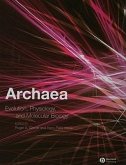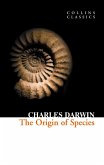This book surveys the models for the origin of life and presents a new model starting with shaped droplets and ending with life as polygonal Archaea; it collects the most published micrographs of Archaea (discovered only in 1977), which support this conclusion, and thus provides the first visual survey of Archaea. Origin of Life via Archaea's purpose is to add a new hypothesis on what are called "shaped droplets", as the starting point, for flat, polygonal Archaea, supporting the Vesicles First hypothesis. The book contains over 6000 distinct references and micrographs of 440 extant species of Archaea, 41% of which exhibit polygonal phenotypes. It surveys the intellectual battleground of the many ideas of the origin of life on earth, chemical equilibrium, autocatalysis, and biotic polymers. This book contains 17 chapters, some coauthored, on a wide range of topics on the origin of life, including Archaea's origin, patterns, and species. It shows how various aspects of the origin of life may have occurred at chemical equilibrium, not requiring an energy source, contrary to the general assumption. For the reader's value, its compendium of Archaea micrographs might also serve many other interesting questions about Archaea. One chapter presents a theory for the shape of flat, polygonal Archaea in terms of the energetics at the surface, edges and corners of the S-layer. Another shows how membrane peptides may have originated. The book also includes a large table of most extant Archaea, that is searchable in the electronic version. It ends with a chapter on problems needing further research. Audience This book will be used by astrobiologists, origin of life biologists, physicists of small systems, geologists, biochemists, theoretical and vesicle chemists.
Hinweis: Dieser Artikel kann nur an eine deutsche Lieferadresse ausgeliefert werden.
Hinweis: Dieser Artikel kann nur an eine deutsche Lieferadresse ausgeliefert werden.








